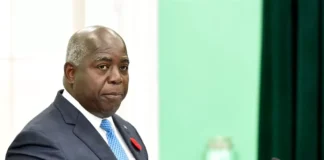Trinidad and Tobago, traditionally known for its oil and gas economy, has been making efforts to diversify its energy sector, with a particular focus on renewable energy. In support of this transition, the Trinidad and Tobago Association of Energy Engineers (TTAEE) and The University of the West Indies (UWI) have teamed up to establish a renewable energy training center. The initiative has been made possible through funding from the Digicel Foundation and energy giant Shell. This collaboration aims to foster expertise and provide training in renewable energy, playing a key role in the country’s move toward more sustainable energy solutions.
Thomas Jackson, Business Development Director of the TTAEE, highlighted that the TTAEE-UWI Renewable Energy Training Centre for Community Service Learning aims to address both the knowledge and skill gaps in the community related to renewable energy systems installation. The center will provide practical training to equip individuals with the necessary expertise to implement renewable energy projects.
As part of the initiative, wind (5kW) and solar (2kW) energy systems will be installed at The University of the West Indies (UWI) for training purposes. This aligns with the center’s objectives to foster hands-on learning. The Agricultural Society of Trinidad and Tobago (ASTT) and local UWI students will be invited to participate, helping to expand the reach and impact of the training program within the local community.
Thomas Jackson emphasized that while the number of beneficiaries of the renewable energy training initiative could grow significantly over the years, the direct beneficiaries in the initial phase will be 10 community farmers from the Agricultural Society of Trinidad and Tobago (ASTT) and 10 UWI students annually. This will result in a total of 60 direct beneficiaries over the course of the three-year program.
The long-term goal of the project is to empower these farmers and students to be able to install renewable energy systems independently. As such, the indirect beneficiaries will include the wider communities where these trained individuals implement future renewable energy projects. Through community service-learning and projects led by the trained farmers, the initiative aims to positively impact local communities and encourage the adoption of renewable energy.
Ryun Singh, President of the TTAEE, emphasized that the next few years will be crucial in shaping Trinidad and Tobago’s energy future, particularly in the areas of sustainable energy, energy efficiency, and renewable energy. He pointed out that the country’s National Energy Policy has not been updated since 1992, and there has been little urgency to enforce sustainable energy legislation.
In response to these challenges, the TTAEE is proactively working to build competence and raise awareness in sustainable energy and energy management. Singh stated that by doing so, the organization aims to ensure that when policy advancements are made, the country will be well-prepared to facilitate the energy transition. This initiative underscores the TTAEE’s commitment to leading the way toward a more sustainable energy landscape in Trinidad and Tobago.
Ryssa Brathwaite, Shell’s Social Performance and Social Investment Advisor, highlighted the company’s commitment to fostering a green energy future through its collaboration with Digicel and TTAEE. She emphasized that the initiative aims to address the growing demand for sustainable energy solutions in Trinidad and Tobago. By partnering with the Digicel Foundation, Shell seeks to inspire the next generation to embrace renewable energy technologies, especially solar power, as a key part of the country’s energy mix.
Brathwaite also pointed out that Shell’s dedication to sustainability is evident in its ongoing green energy projects in the country. Initiatives such as Shell NXplorers and Re-Energize TnT have empowered hundreds of young people with the knowledge and tools to implement renewable energy solutions in their communities.
This project is part of the Digicel Foundation’s EPIC program, which was launched in 2016 as a sustainability initiative aimed at providing both financial and technical support to small-scale, community-based organizations. Through this collaboration, Shell and Digicel are making a meaningful contribution to the transition toward sustainable energy in Trinidad and Tobago.














